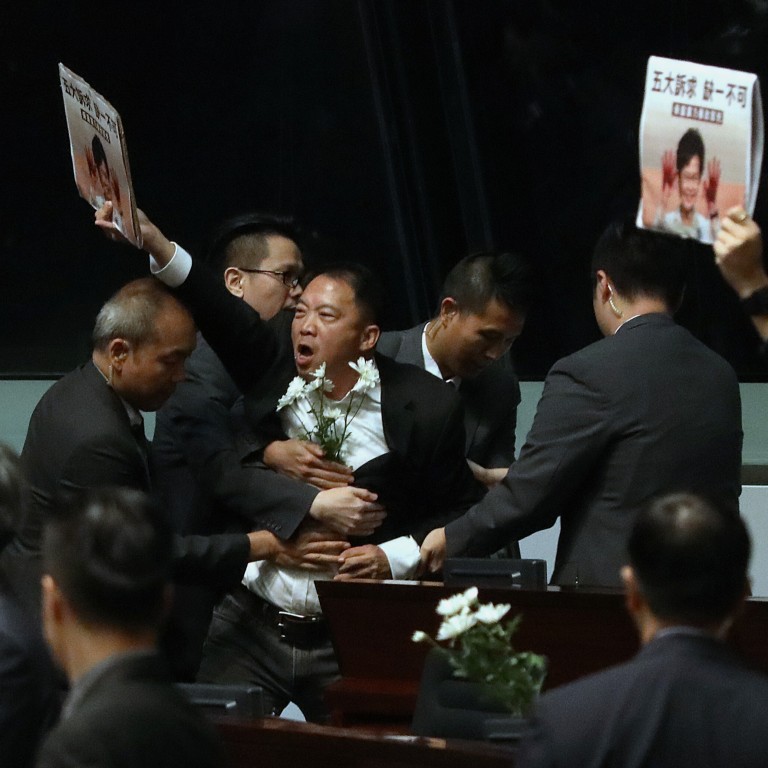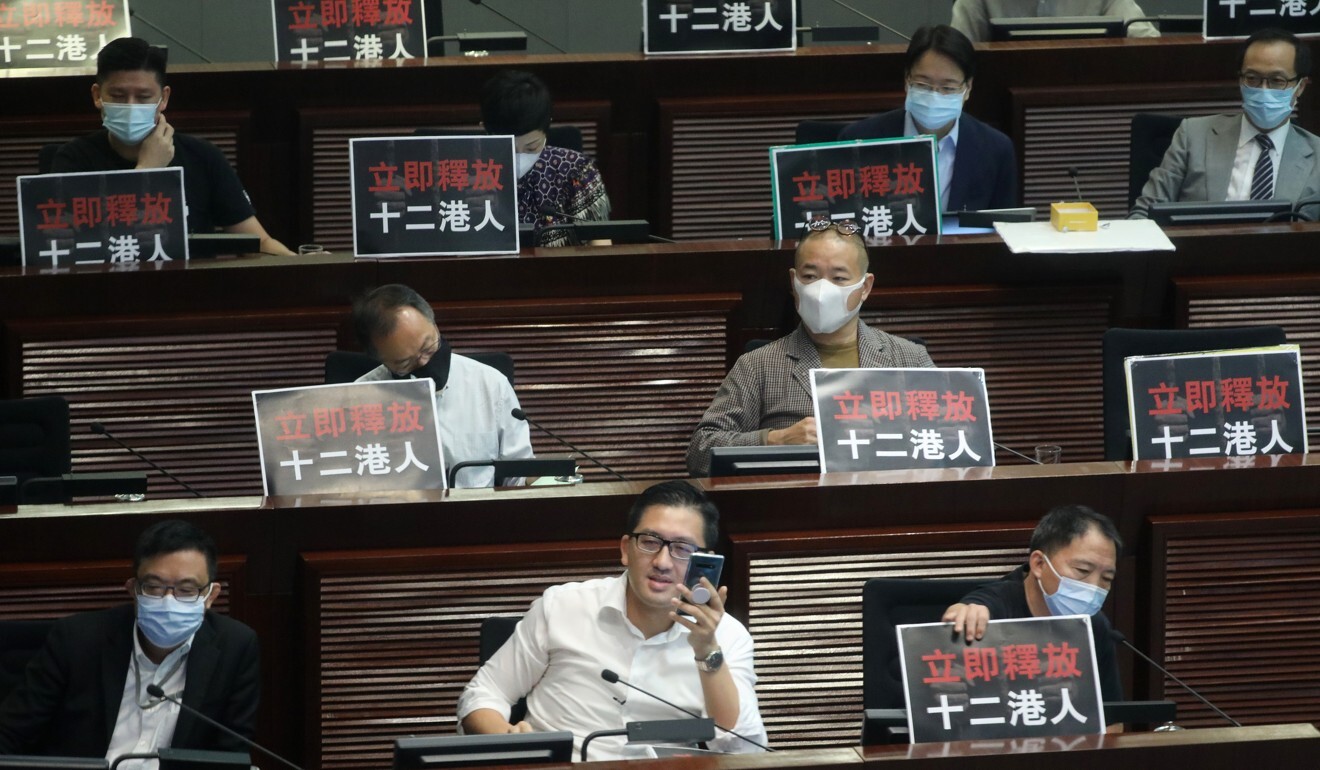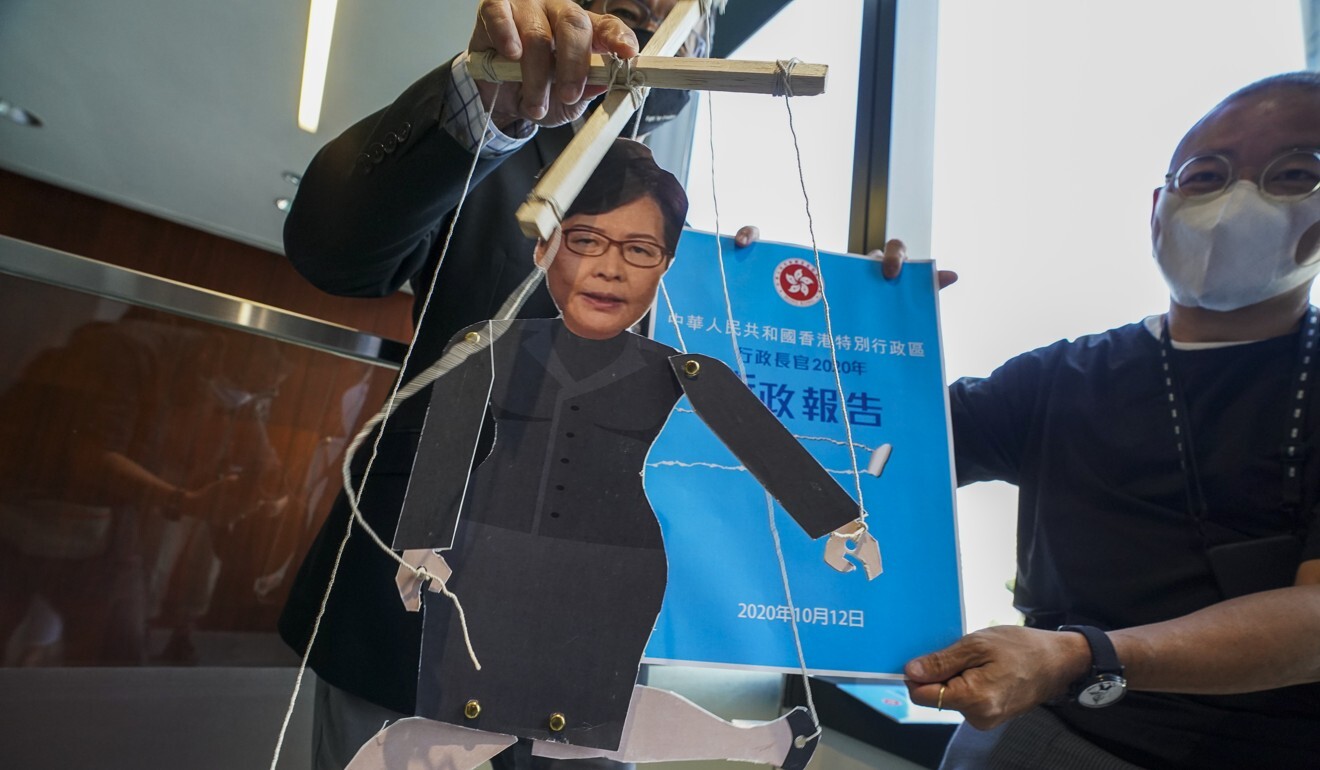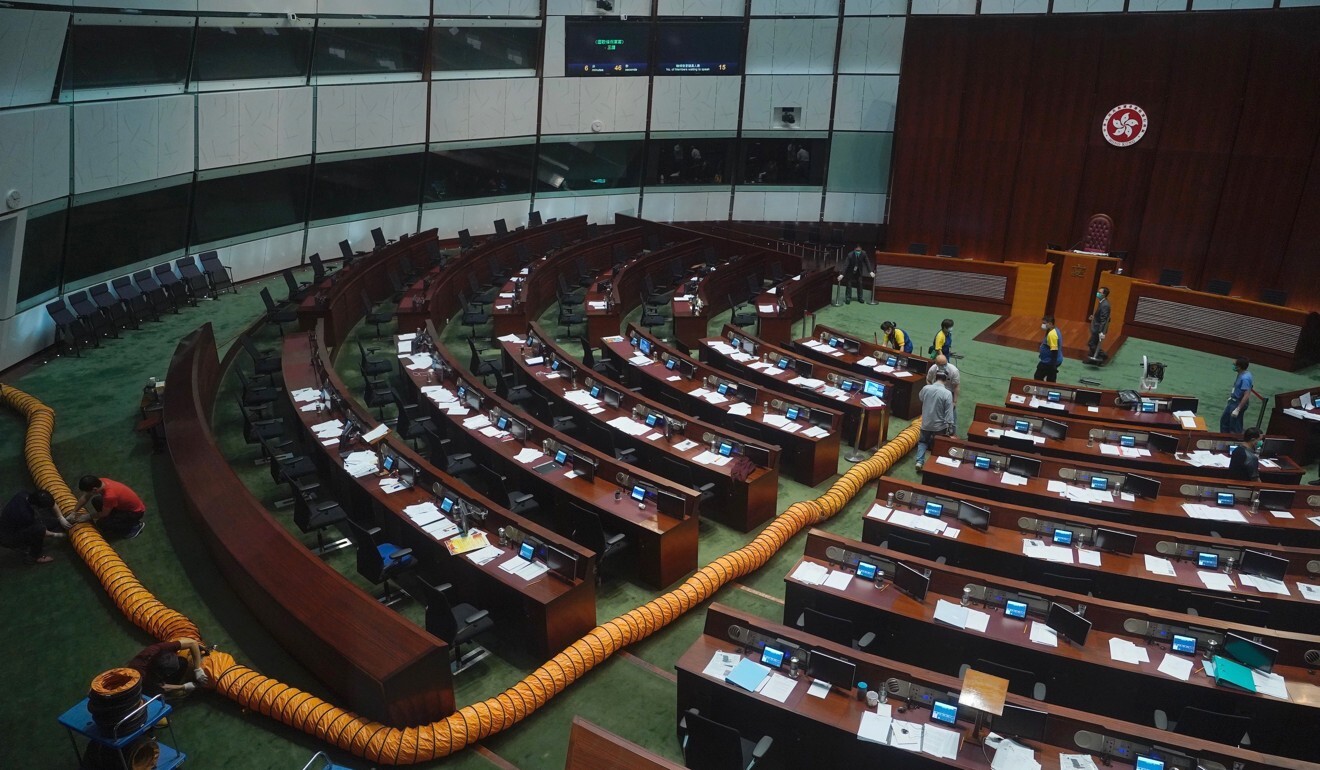
National security law: when disruption equals ‘subversion’, what’s left for Hong Kong’s opposition legislators?
- With Legco set to resume on Wednesday, pan-democrats are wondering whether protest tactics of the past could run afoul of the new law
- While the camp’s convenor strikes a defiant tone, one lawmaker acknowledges the new term won’t be ‘business as usual’
With uncertainty swirling over the new red lines, some in the camp have acknowledged that their past tactics – which included yelling slogans and interrupting the city leader’s speeches – may now be deemed to be in breach of the sweeping law.
“We will definitely resist,” he said.
But one lawmaker, who spoke on condition of anonymity, said: “It is hard to ascertain how far and wide [the law] will go. So there are going to be some experiments.”

The camp’s concerns relate to Article 22 of the national security law, which stipulates that anyone found to be “seriously interfering in, disrupting or undermining the performance of duties and functions” of the local or central governments is guilty of subversion.
The coming year is expected to prove challenging for the bloc given the thin line they will have to tread to maintain their long-held role as a vocal opposition without overstepping the bounds of the new law.
Complicating matters are the camp’s own supporters, who have pressed for a more confrontational approach against authorities and ramped-up activism inside the legislature, something that could end up making the opposition easier targets under the law.
Divided and weak: Hong Kong opposition in disarray as Legco rift deepens
Wednesday is meant to be the start of a new Legco term, traditionally an opportunity for the chief executive to deliver the keynote policy address to the incoming class of lawmakers, but city leader Carrie Lam Cheng Yuet-ngor has upended the usual state of affairs – twice.

Instead of hosting the address, Legco on Wednesday will now resume debate on four uncontroversial bills, including the Statute Law (Miscellaneous Provisions) Bill 2019 and the Fisheries Protection (Amendment) Bill 2019.
Legco term extension breathes new life into four Hong Kong bills
After the passage of the national security law, it would no longer be “business as usual”, he said, warning of the danger of adopting an aggressive approach for every issue in the chamber.
“You have to be more calculating, because the cost is higher now,” he added.
Another opposition lawmaker, who also spoke on the condition of anonymity, said: “We can only adopt a wait-and-see approach.”
But Wu, from the Democratic Party, said he believed nothing had changed. Even before the enactment of the law, he said, the opposition camp did not adopt a confrontational approach for every issue.
In the past, they also faced legal consequences for carrying out their activism, he added.

One more pan-democrat, also speaking on condition of anonymity, said the camp would still make full use of every opportunity to speak in the coming year, even on uncontentious bills.
“We will ensure everything is fully discussed so the government cannot fast-track any evil bills,” the source said, citing a plan by the administration to amend current laws to allow Hongkongers living on the mainland to cast ballots in the city’s elections.
Meanwhile, pro-Beijing figure Ip Kwok-him, a delegate to the National People’s Congress, China’s top legislature, warned pan-democrats of the potential consequence they could face if they fell back on old habits, saying: “It would be a big problem if they carry on their usual protest antics.”
Ip, however, stopped short of elaborating what would and would not be allowed in the legislature following the imposition of the national security law.


